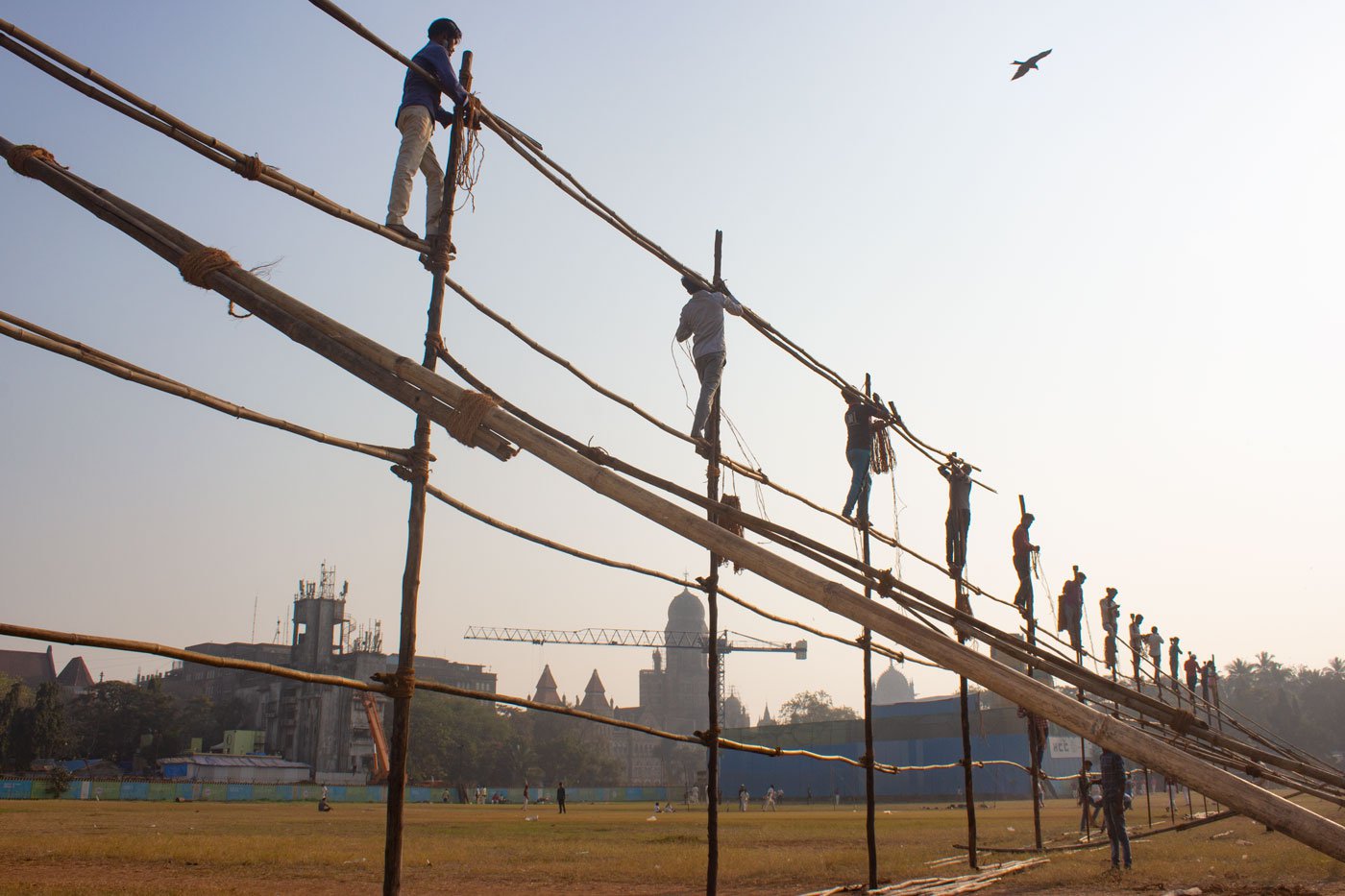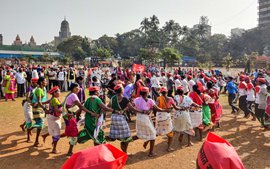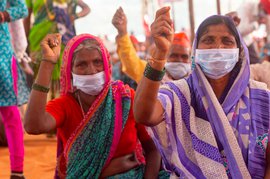Someone calls from the distance – break time is over. A supervisor begins assigning roles, speaking in Awadhi – and work begins again. Ram Mohan is dispatched to a quieter corner of the maidan to work on the foundation for a small tent.
It’s Saturday, January 23, and Ram is among 50 men working 10-hour shifts for two days to pitch
pandals
(tents) for the tens of thousands of farmers who will start coming here from the morning of January 24 to protest against the three farm laws and to reiterate the demand that they are repealed. The rally will culminate on January 26, Republic Day.
Ram Mohan plans to stay on at Azad Maidan in south Mumbai to join the protesting farmers. “I have been trying to follow what is happening and I want to come to listen to what other farmers are saying – and how we too will benefit [from their demands],” he says.
His family in Umari Bdgamganj village of Gonda district in Uttar Pradesh cultivates wheat and paddy. “What can we do with 6-7 bighas [a little over an acre]? Enough for sustenance, but not much more,” he says. The rally for which he is busy making tents, he hopes, will help bring better prices for the produce of his and other farm families.
For 23 years, Ram Mohan, now around 43, has been doing daily wage labour in Mumbai. He finds work by waiting at the labour naka near Malad railway station in north Mumbai – and can earn, on days when he finds work, up to Rs. 700 as daily wages.
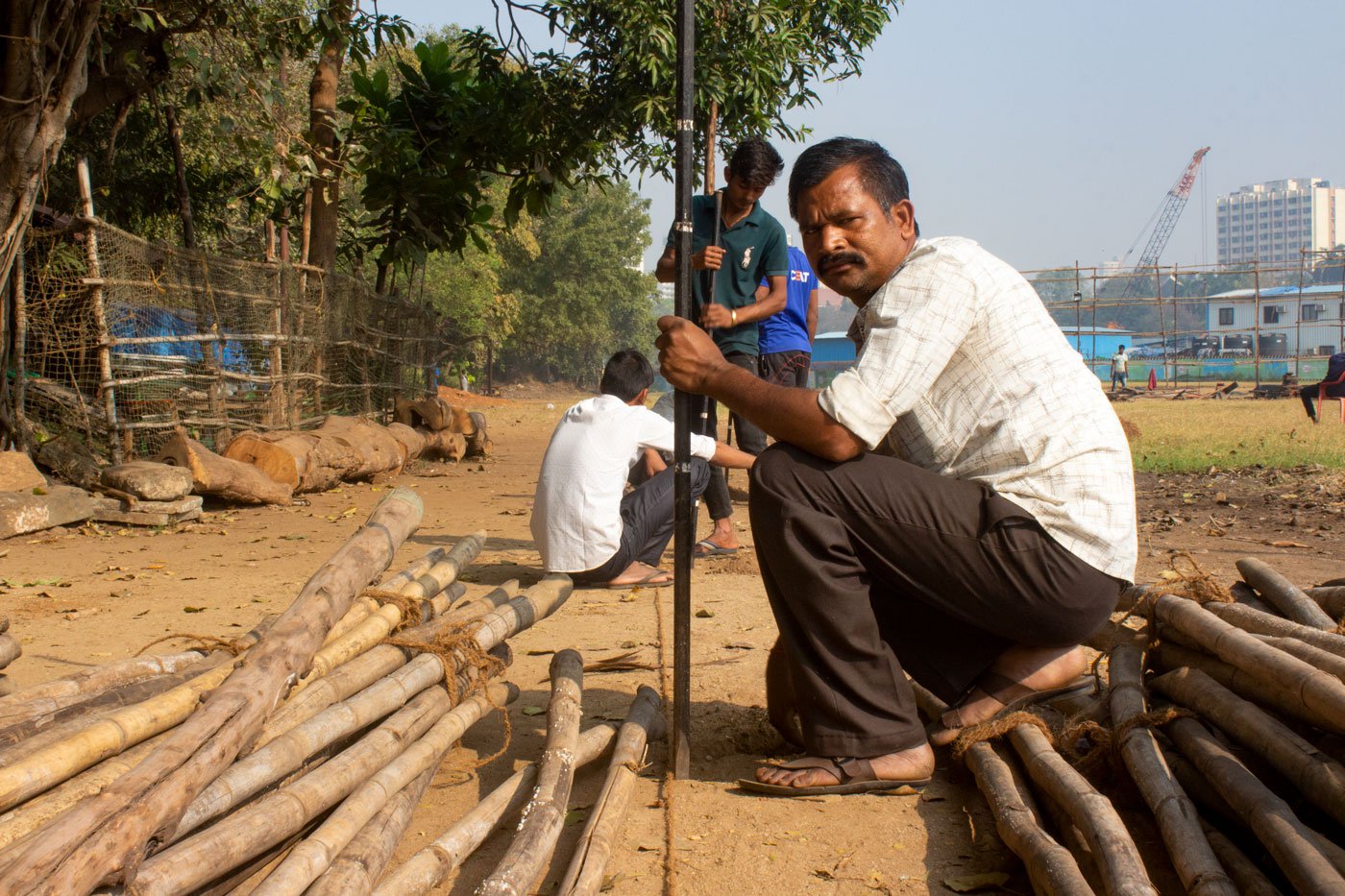
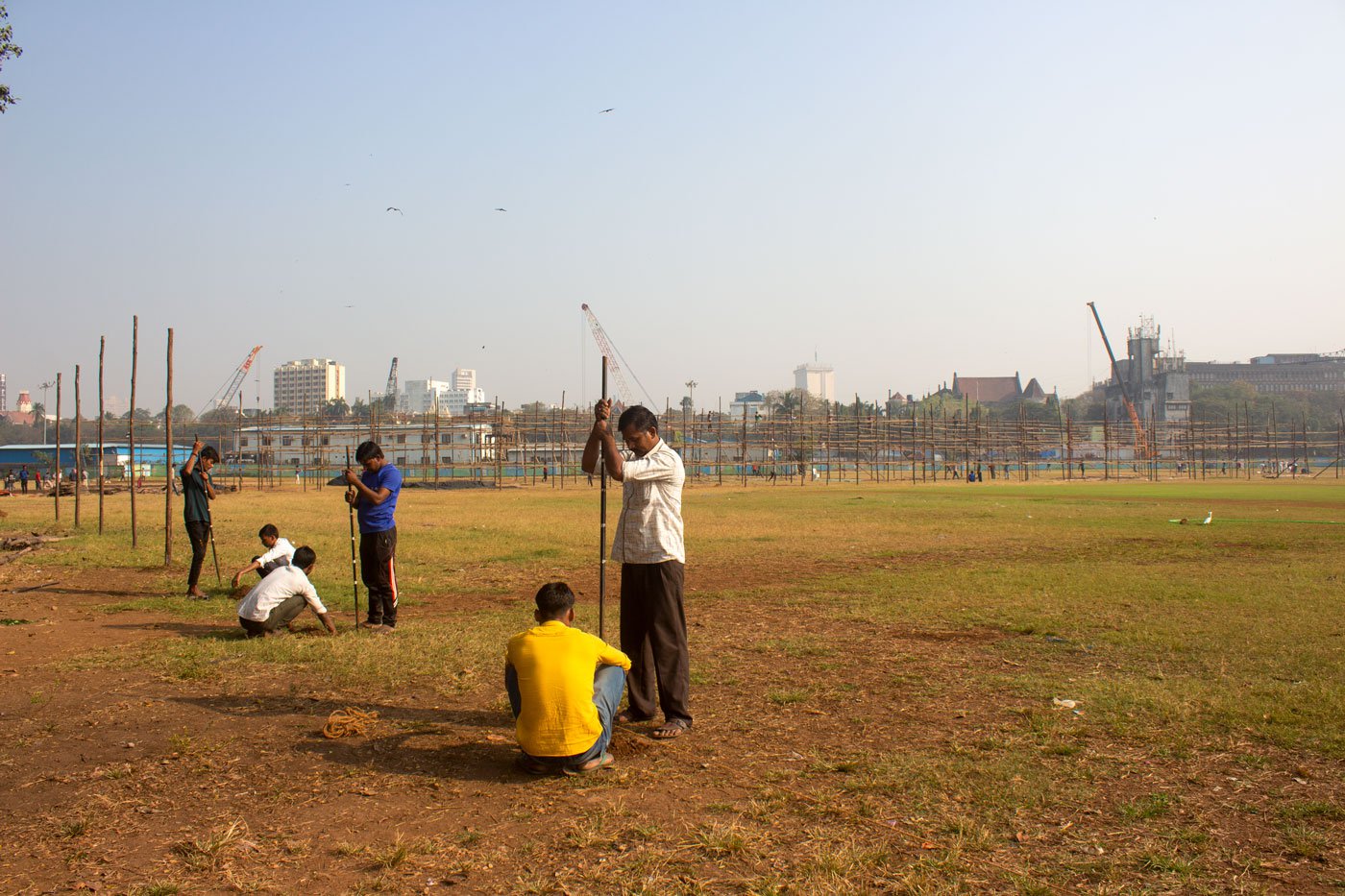
Ram Mohan has been working for two days to pitch tents for the rally against the new farm laws in Azad Maidan, which he hopes to join
By the time he and his team are done with the tents – they have been brought here by a contractor employed by a company that arranges for tents and decorations at large gatherings – the farmers will begin arriving in Azad Maidan. Most of them will come here in a protest march that began around 180 kilometres away, in Nashik, on January 23. The march and the Azad Maidan rally have been organised by the Samyukta Shetkari Kamgar Morcha, an alliance of organisations affiliated with the All India Kisan Sangharsh Coordination Committee, the Trade Unions Joint Action Committee, Nation for Farmers, and other collectives that stand in solidarity with the farmers’ protests at the borders of Delhi that have been on since November 26.
The farmers have been protesting against the three laws passed in Parliament in September 2020. These were first passed as ordinances on June 5, 2020, then introduced as farm bills in Parliament on September 14 and hastened into Acts by the 20th of that month. The three laws are the Farmers (Empowerment and Protection) Agreement on Price Assurance and Farm Services Act, 2020 , the Farmers’ Produce Trade and Commerce (Promotion and Facilitation) Act, 2020 and the Essential Commodities (Amendment) Act, 2020 .
The farmers see this legislation as devastating for their livelihoods by expanding the space for large corporate to exercise even greater power over farming. They also undermine the main forms of support to the cultivator, including the minimum support price (MSP), the agricultural produce marketing committees (APMCs), state procurement and more. The laws have also been criticised as affecting every Indian as they disable the right to legal recourse of all citizens, undermining Article 32 of the Constitution of India.
Until the protestors arrive at Azad Maidan, Devender Singh too – he is among the decorator’s team that sets the stage (literally) – is on duty. He estimates that it will take them 3,000 bamboos, 4,000 metres of cloth, and numerous bundles of jute rope to pitch the tents for the rally.
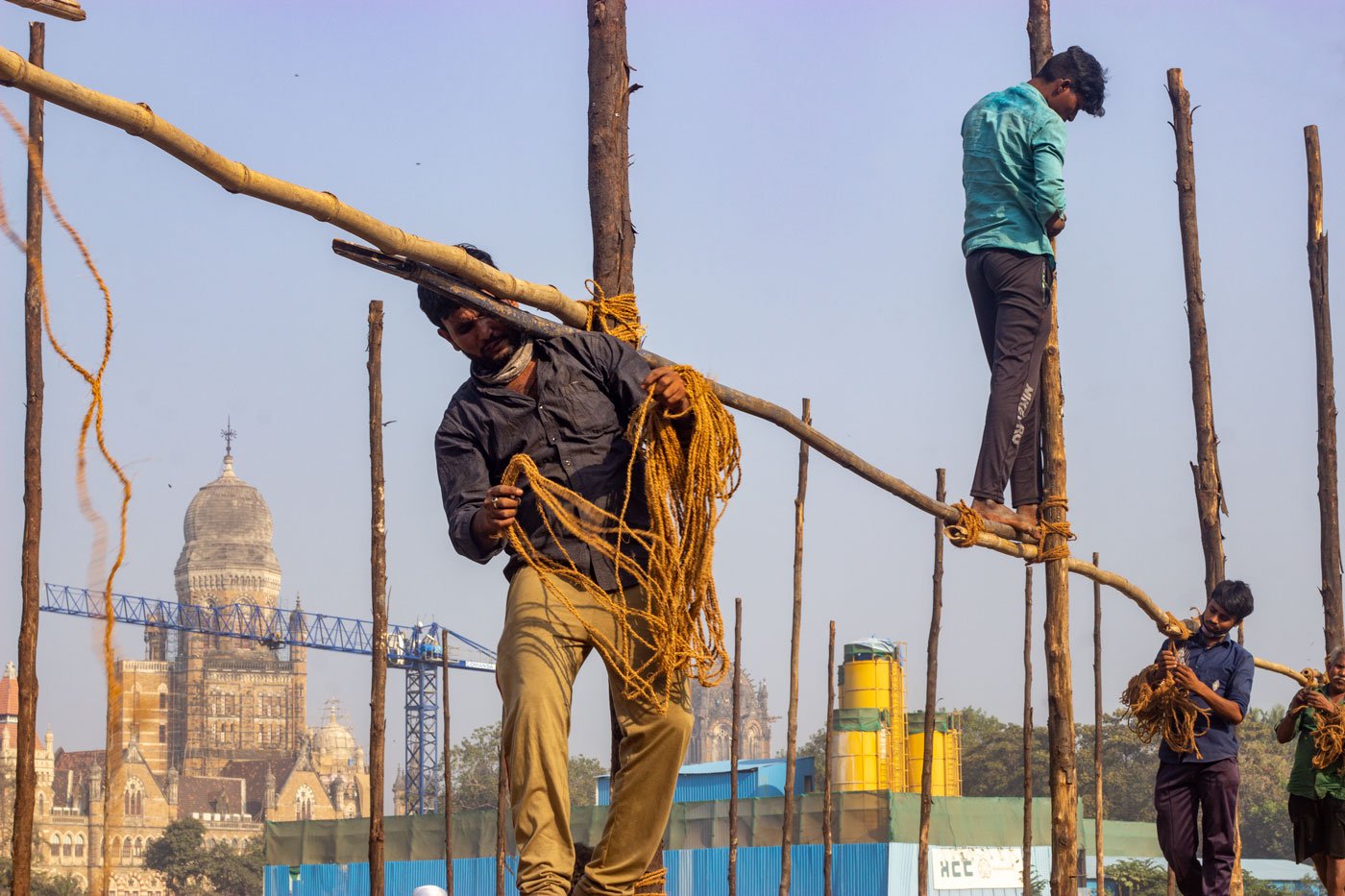
Devendra Singh’s family cultivates on three bighas of land back in UP. In Mumbai, he prefers daily wage work as it lets him send money home any time
Devendra, 40, is also from Uttar Pradesh’s Gonda district, like most of the workers pitching tents at the maidan . “Since the past 1-2 years, the governments [central and state] are themselves in trouble because of corona,” he says. “What can they do about farmers?”
Devendra’s family – parents, wife and three children – cultivates wheat, paddy and corn on three bighas of land in Rajatola hamlet of Karnailganj block. In 2003, he came to Mumbai looking for work. “I did all kinds of work, but liked this line the best,” he says.
“If you work someplace else, you will get a salary after a month. But if there’s a problem at home and they need money, this way I can send it the next day,” he adds referring to the cash in hand he gets as daily wages – usually, Rs. 500.
It’s the workers’ hour-long lunchbreak, 1 to 2 p.m. on January 23, and he is resting for a while under a half-made tent of black and red cloth, which will become the pandal ’s roof after the men finish their break. Sitting next to him is 20-year-old Brijesh Kumar, from Laxmanpur village in Gonda. He started working in Mumbai at the age 16 and earns a daily wage of Rs. 500 for around 20 days in a month. “We do whatever work we can find,” Brijesh says – painting, construction and other jobs. Where did he learn how to erect these huge pandals ? “Whoever came before us knew what to do,” he replies. “We worked with them, they told us how to tie and climb. Like that we learned. If someone comes from the village, we’ll take them along too.”
The bamboo scaffolding for the tents goes as high as 18-20 feet. For two days now, the men have been climbing – without any safety equipment – from 9 a.m. till 9 p.m. to get all the small and big tents up in time. After sunset on January 22, they worked under one strobe light, with Devendra squinting to ensure each row of bamboos is tied at the same height.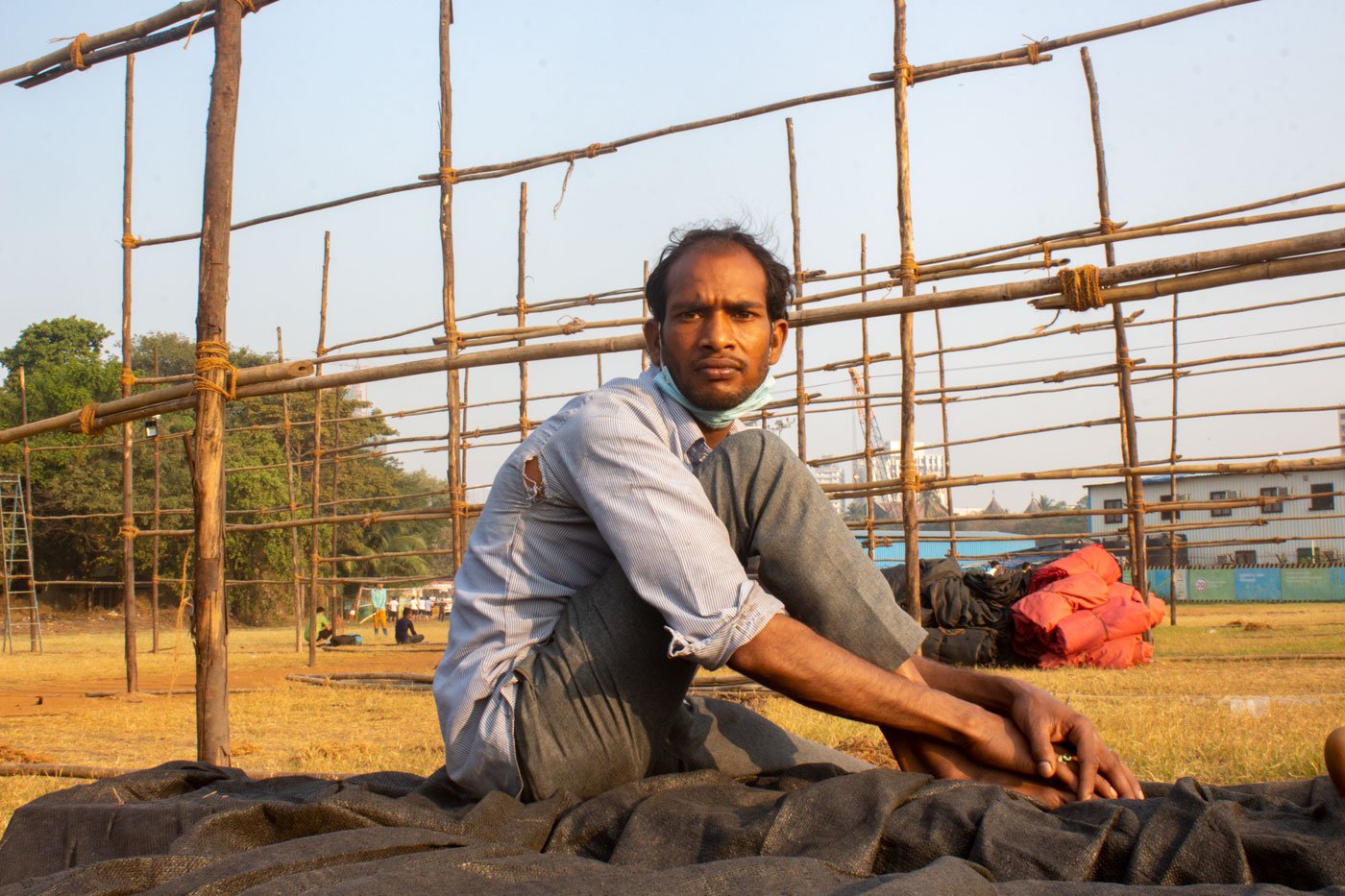
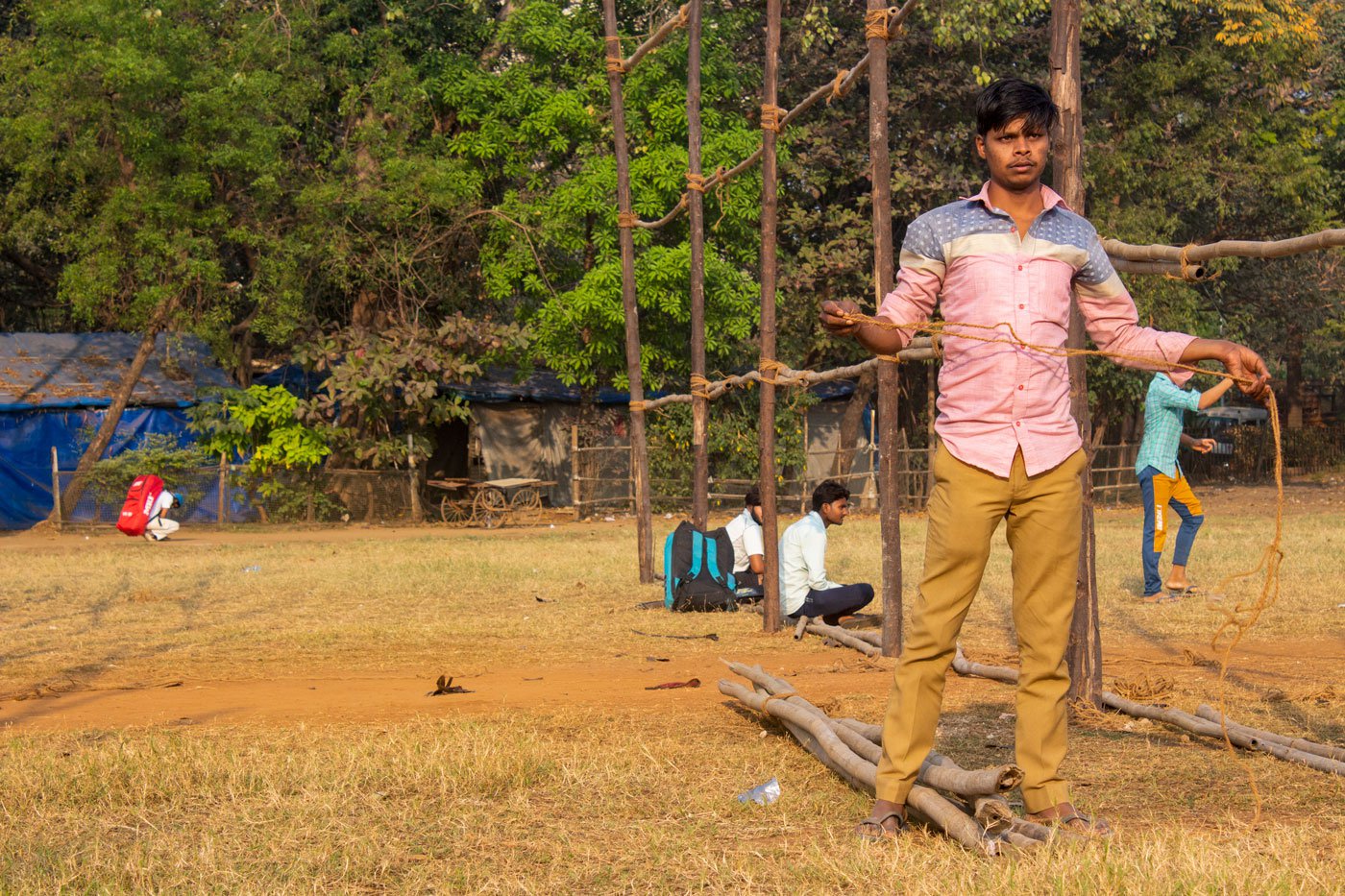
'I won’t be joining the protest', says Santraman (left). Brijesh adds: 'We don’t get any time away from work'
He says they work only in Mumbai. And when they are called to do chappre ka kaam – covering the roofs of restaurants, highrises and other buildings before the rains – they have even climbed anywhere between 30 and 80 feet. “For a new man, we’ll make him start with picking up the bamboos. Then slowly we make him tie the lower bamboos. And then make him climb,” Devendra says, smiling.
“If we don’t do mazdoori [wage labour] here, then we won’t be able to farm [back in the village],” adds Ram Mohan. “To buy fertiliser, seeds and other things, we need money – this doesn’t come from farming. That’s why we work here [in Mumbai].”
While Ram Mohan plans to stay on for the rally starting at south Mumbai’s Azad Maidan on January 24, the others will return back to their rented rooms in north Mumbai. “I won’t be joining the protest. And I don’t know much about the [farm] laws. I work and earn, that’s all,” says Santraman, 26, from Paraspur village in Gonda district, whose family does not own any farmland.
“ Kaam se fursat nahi hoti [We don’t get any time away from work] , ” Brijesh adds. “Once we’re done with work here, we will go to work somewhere else. Many join these protests. But if we don’t work, what will we eat?”
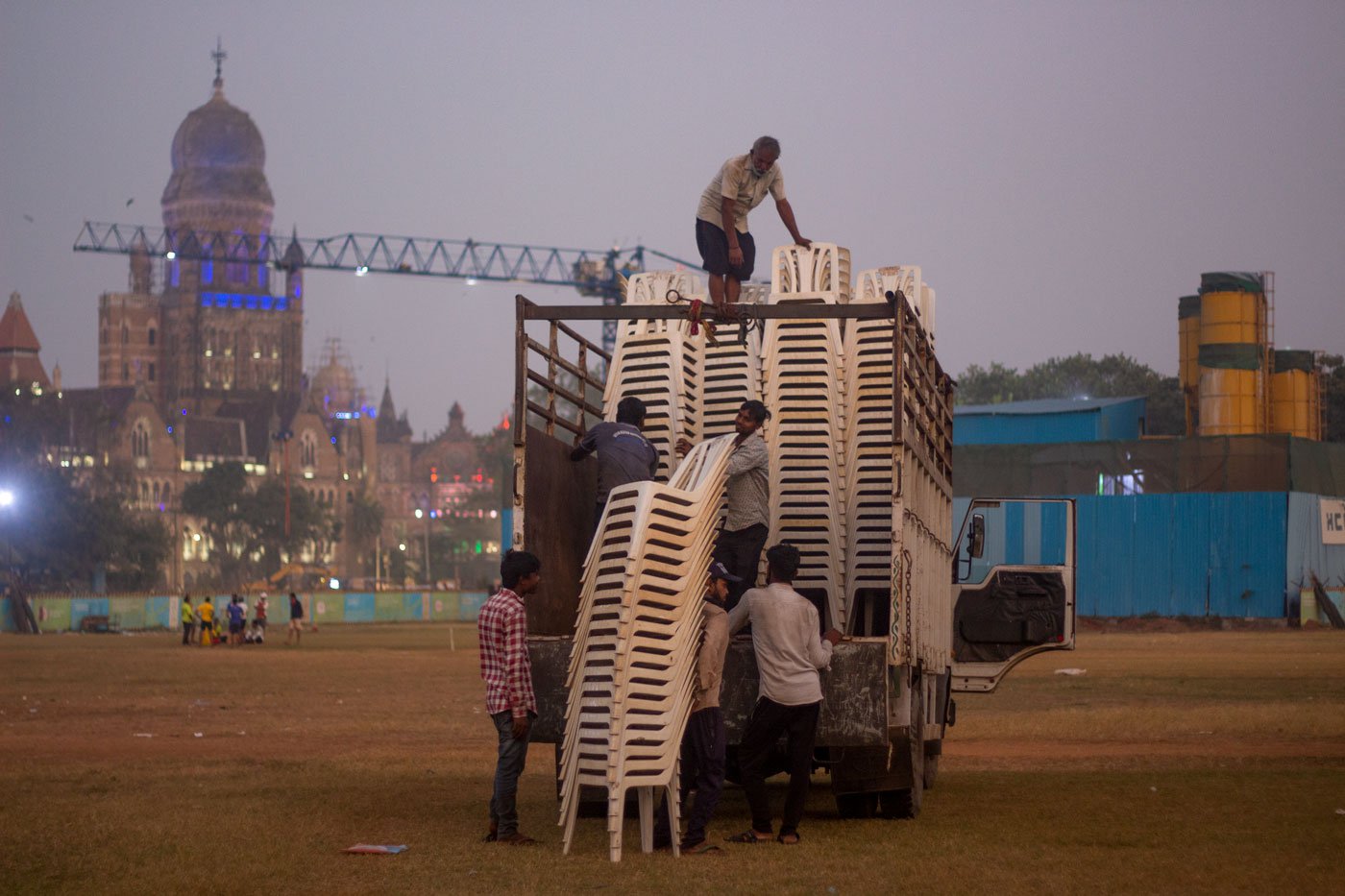
Once the labourers finish making the tents, thousands of farmers will begin arriving in Azad Maidan in a protest march that began in Nashik on January 23
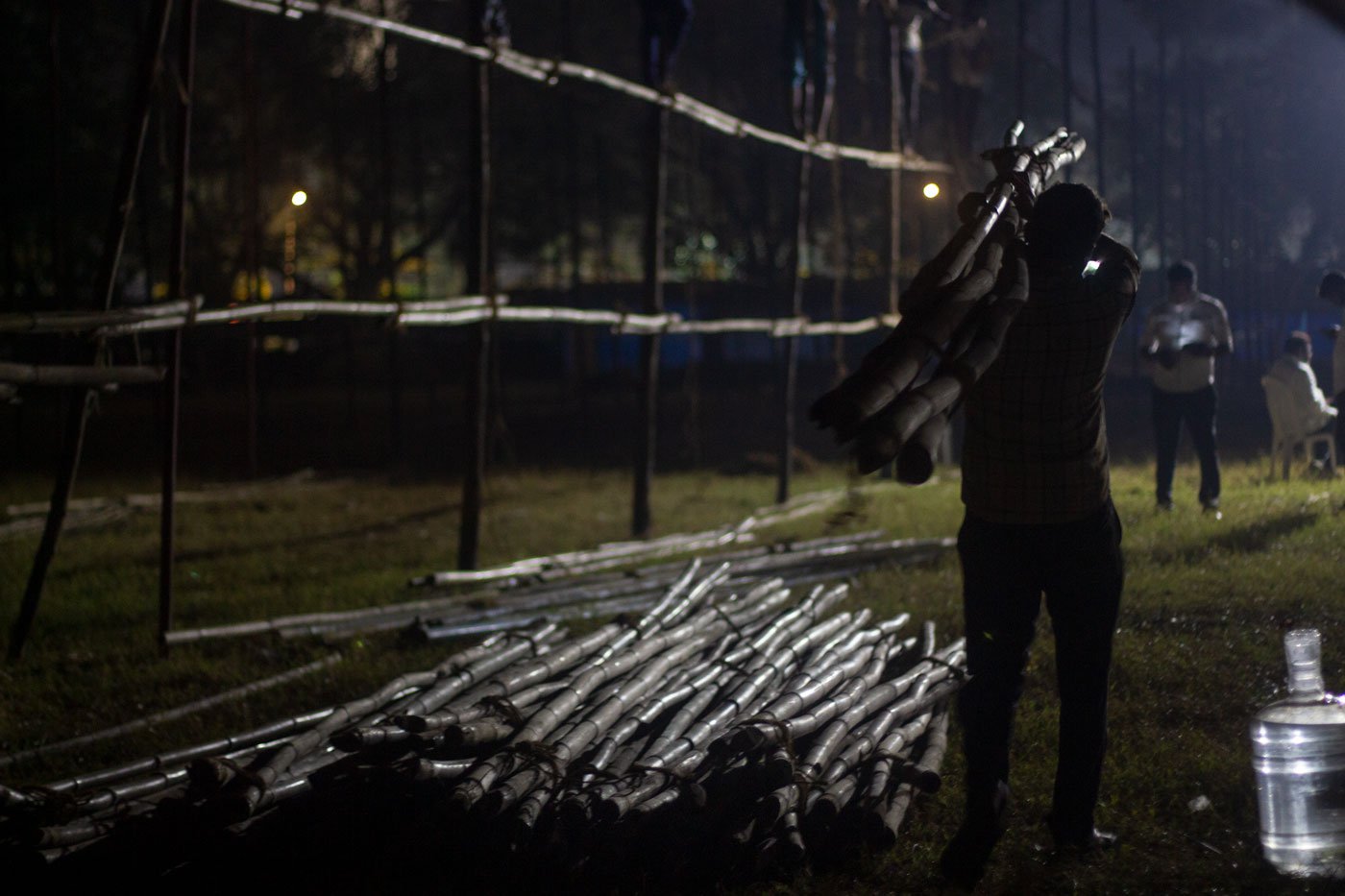
At the site, the bamboo scaffolding goes up to 18-20 feet. For two days, the men climbed – without any safety equipment – from 9 a.m. till 9 p.m. to get the tents up in time
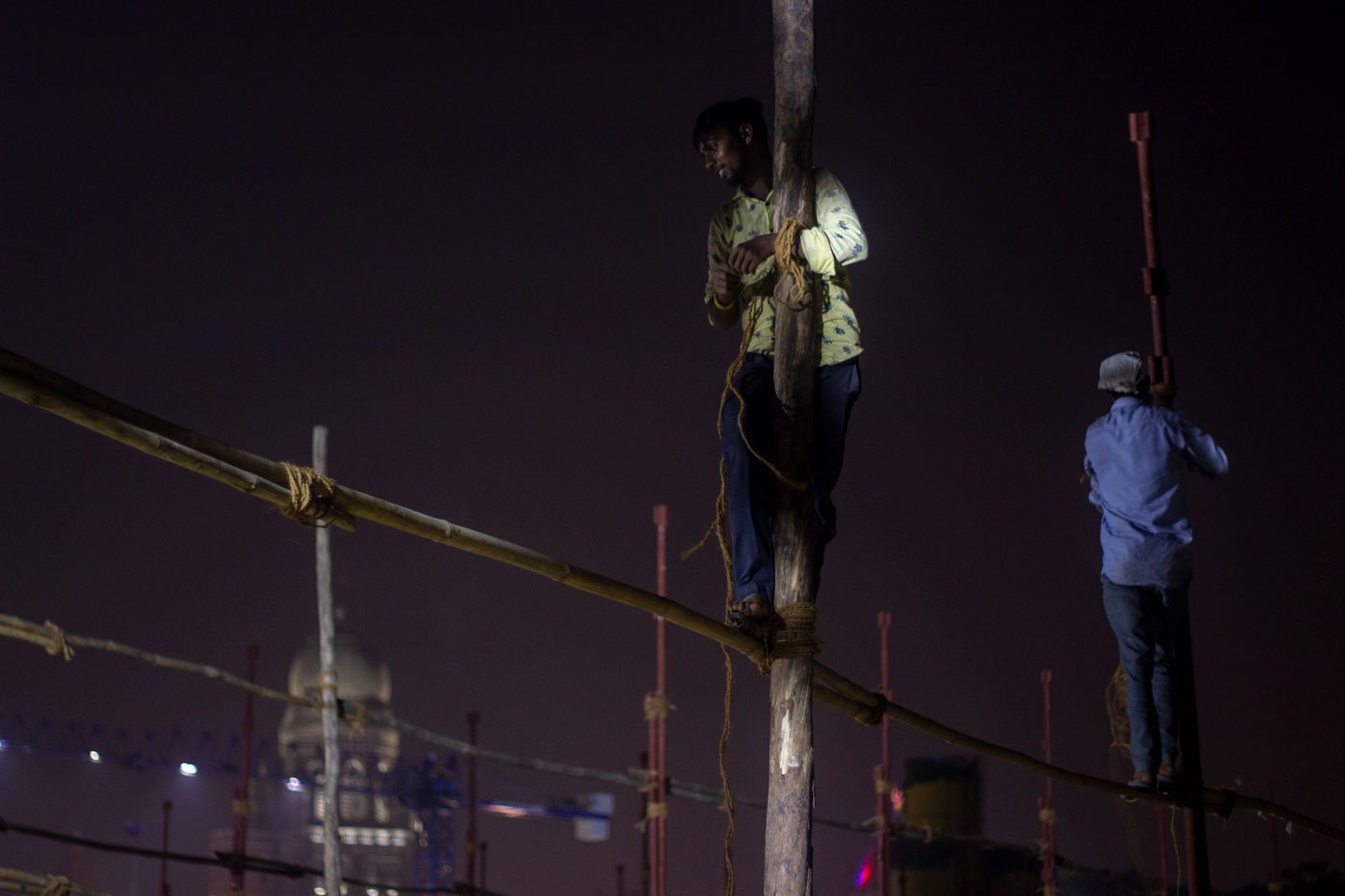
After sunset, they worked under one strobe light, with the labourers – including 19-year-old Shankar Chauhan – squinting to ensure each row of bamboos is tied at the same height
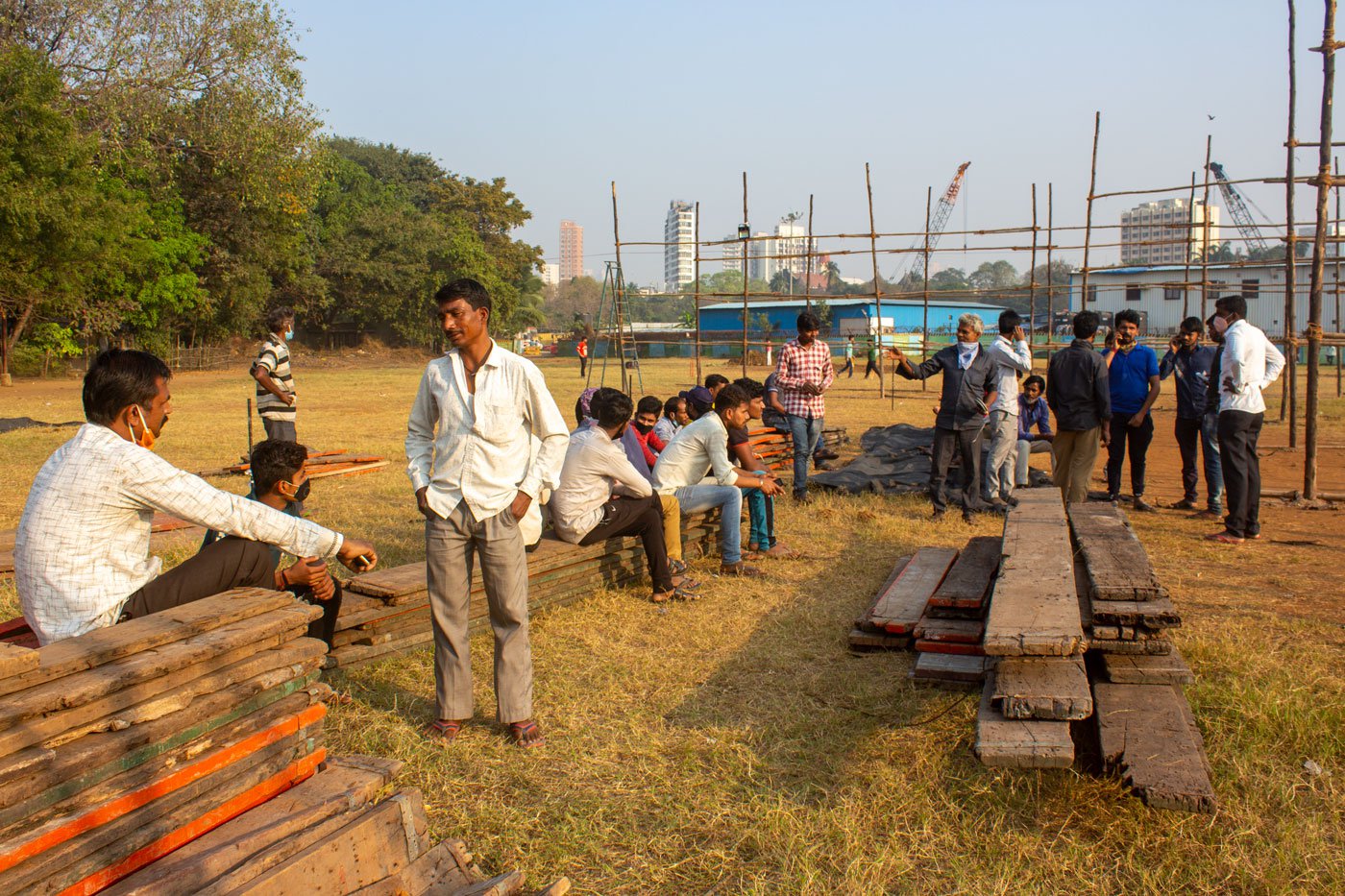
'We do whatever work we can find', Brijesh Kumar says – including painting, construction and other jobs
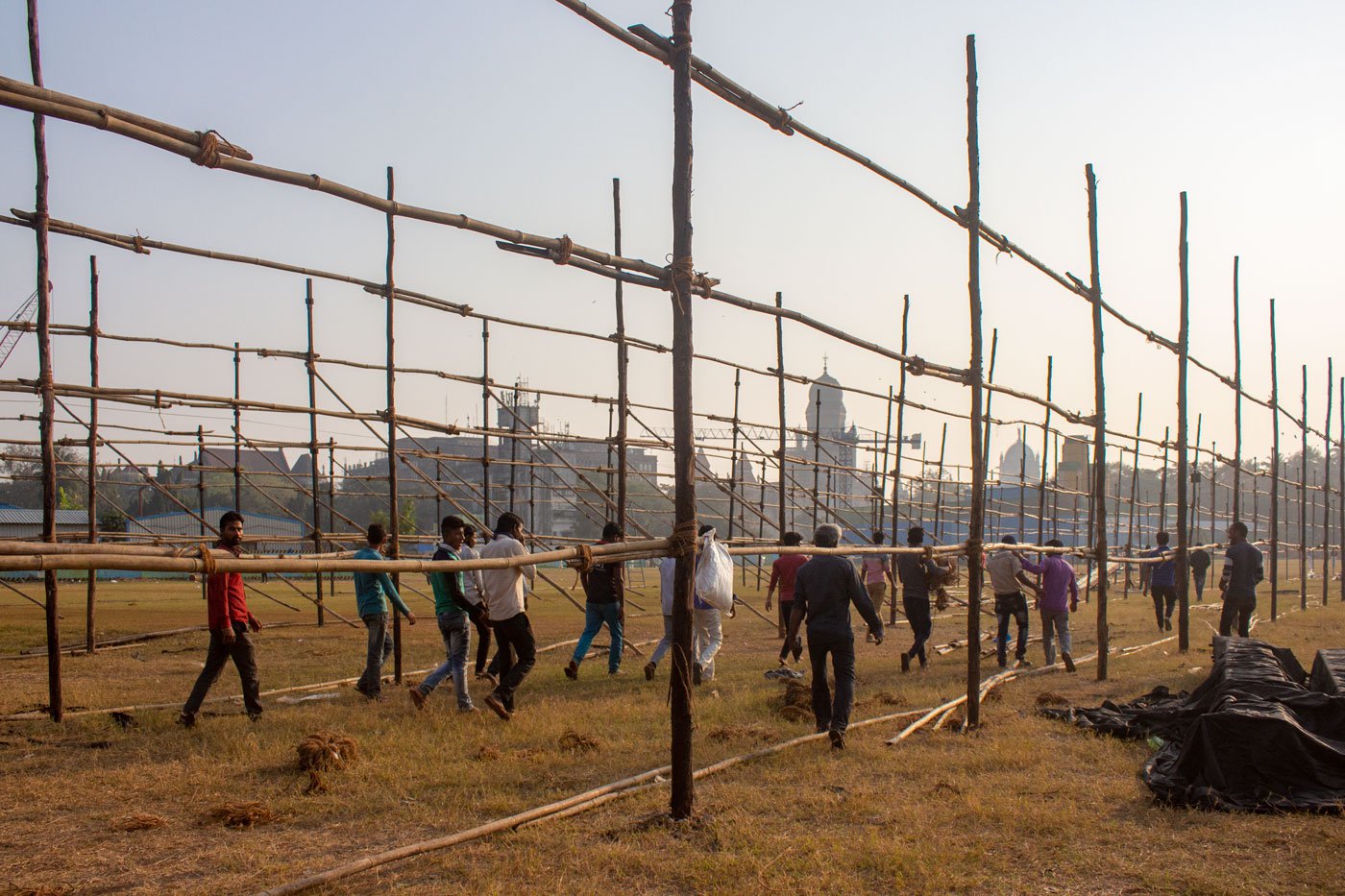
It will require roughly 3,000 bamboos, 4,000 metres of cloth, and numerous bundles of jute rope to pitch the tents for the rally
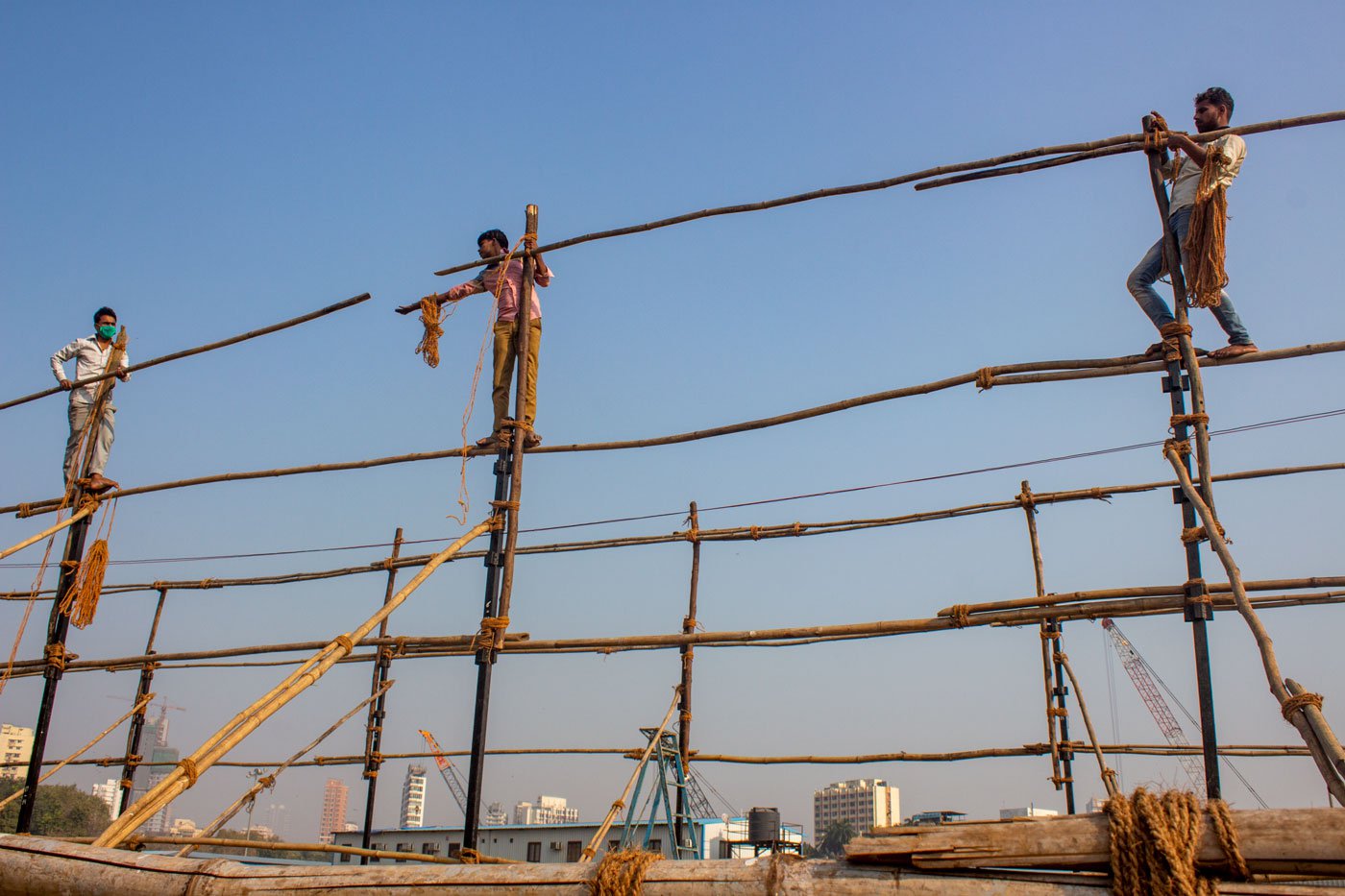
'Whoever came before us knew what to do', says Brijesh
(centre)
– with Mahendra Singh (left) and Rupendra Kumar Singh
. 'We worked with them, they told us how to tie and climb. Like that we learned. If someone comes from the village, we’ll take them along too'
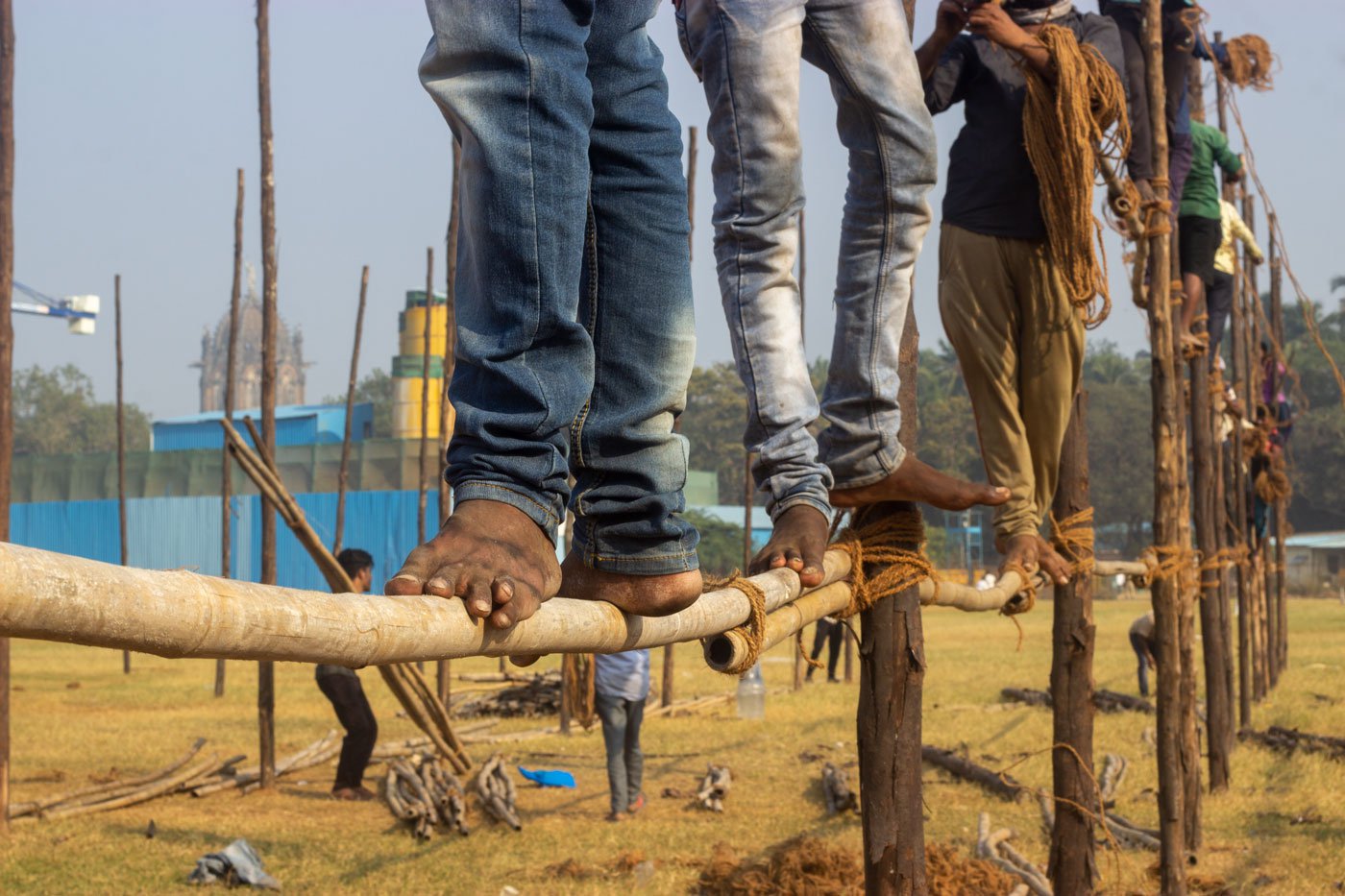
'We'll make a new man start with picking up the bamboos. Then slowly we make him tie the lower bamboos. And then make him climb', Devendra says
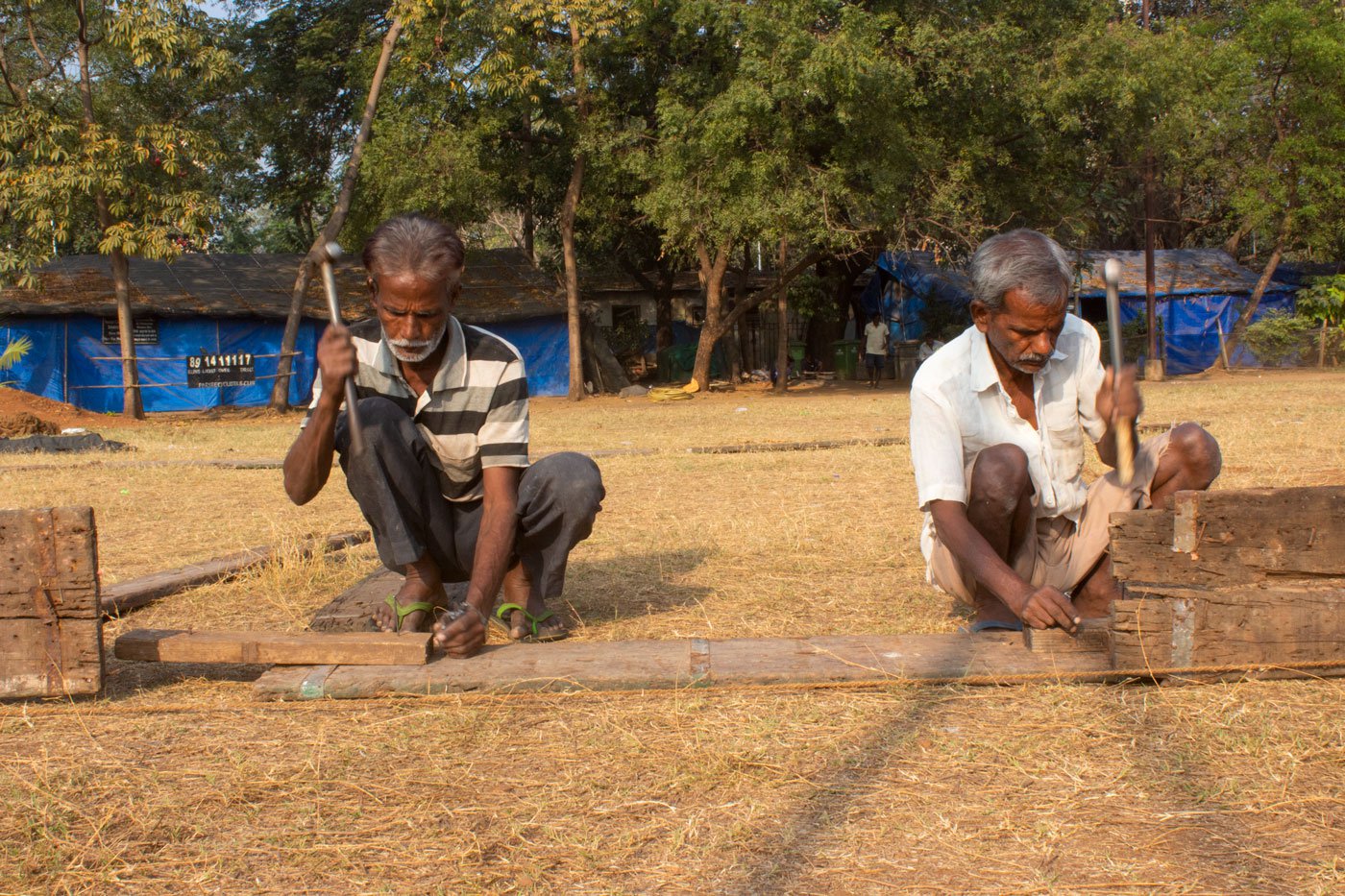
Some labourers plan to stay on for the rally starting on January 24, while others will return back to their rented rooms in north Mumbai
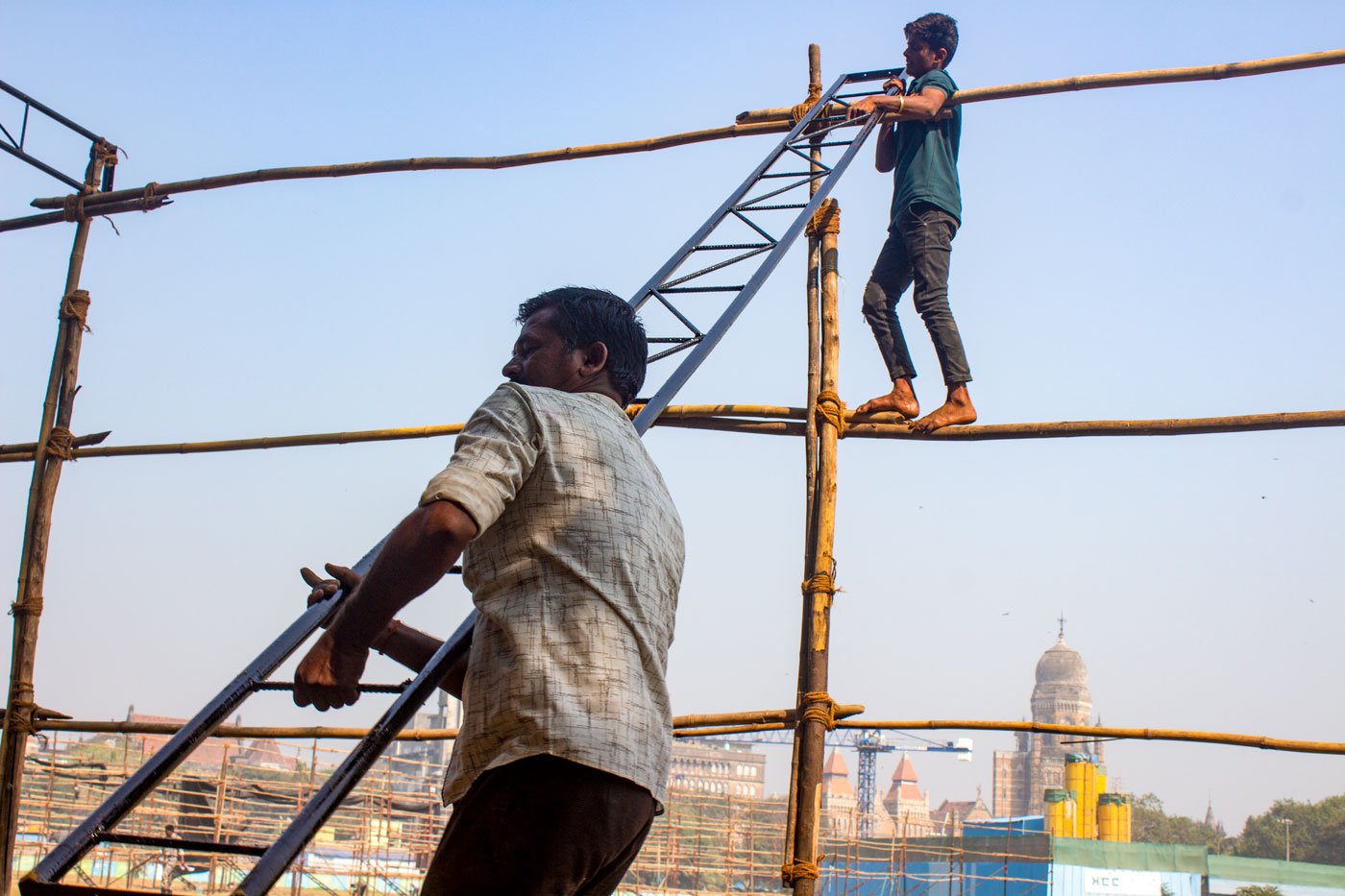
'If we don’t do
mazdoori
[wage labour] here, then we won’t be able to farm [back in the village]', says Ram Mohan (below). 'To buy fertiliser, seeds and other things, we need money – this doesn’t come from farming'
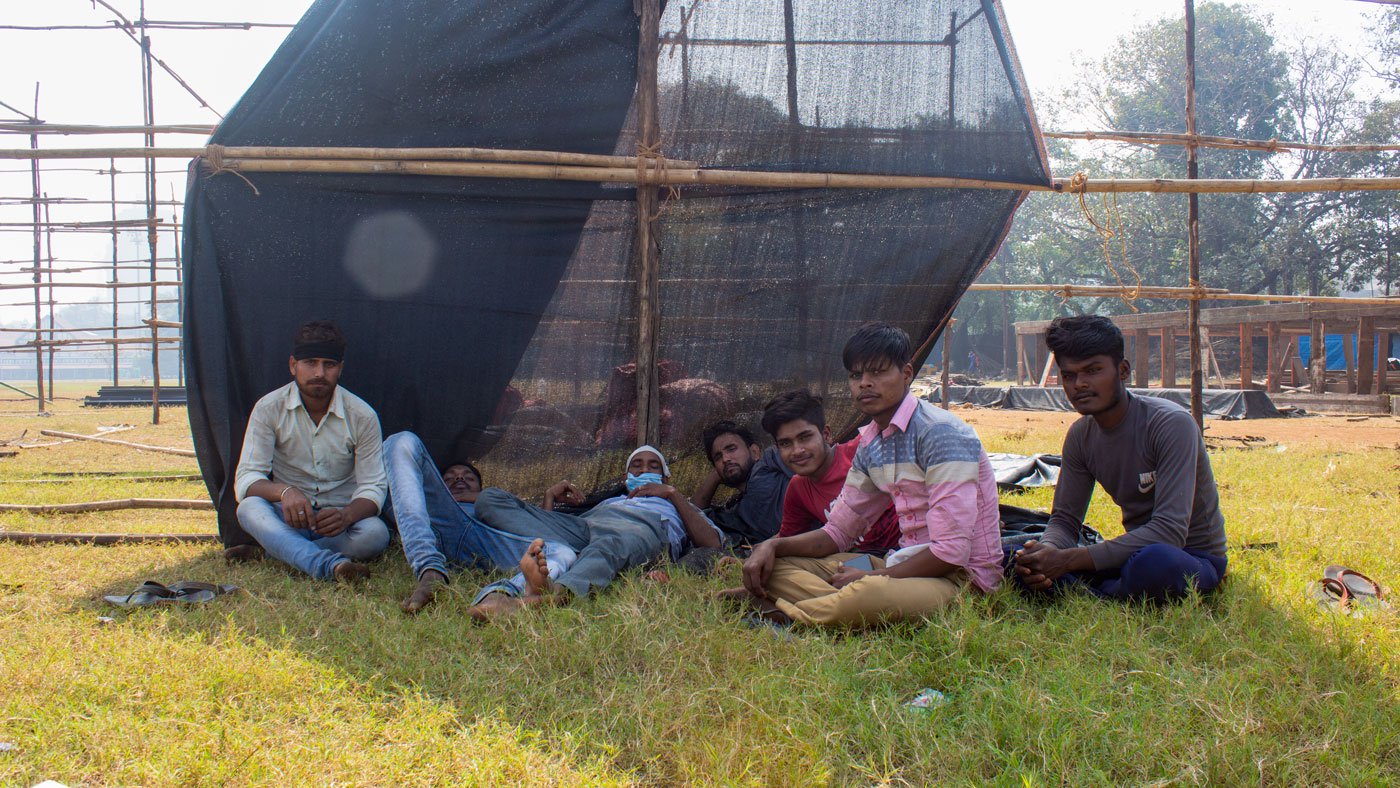
'I don’t know much about the [farm] laws. I work and earn, that’s all,' says Santraman (in a mask) – here, with others from UP's Gonda district
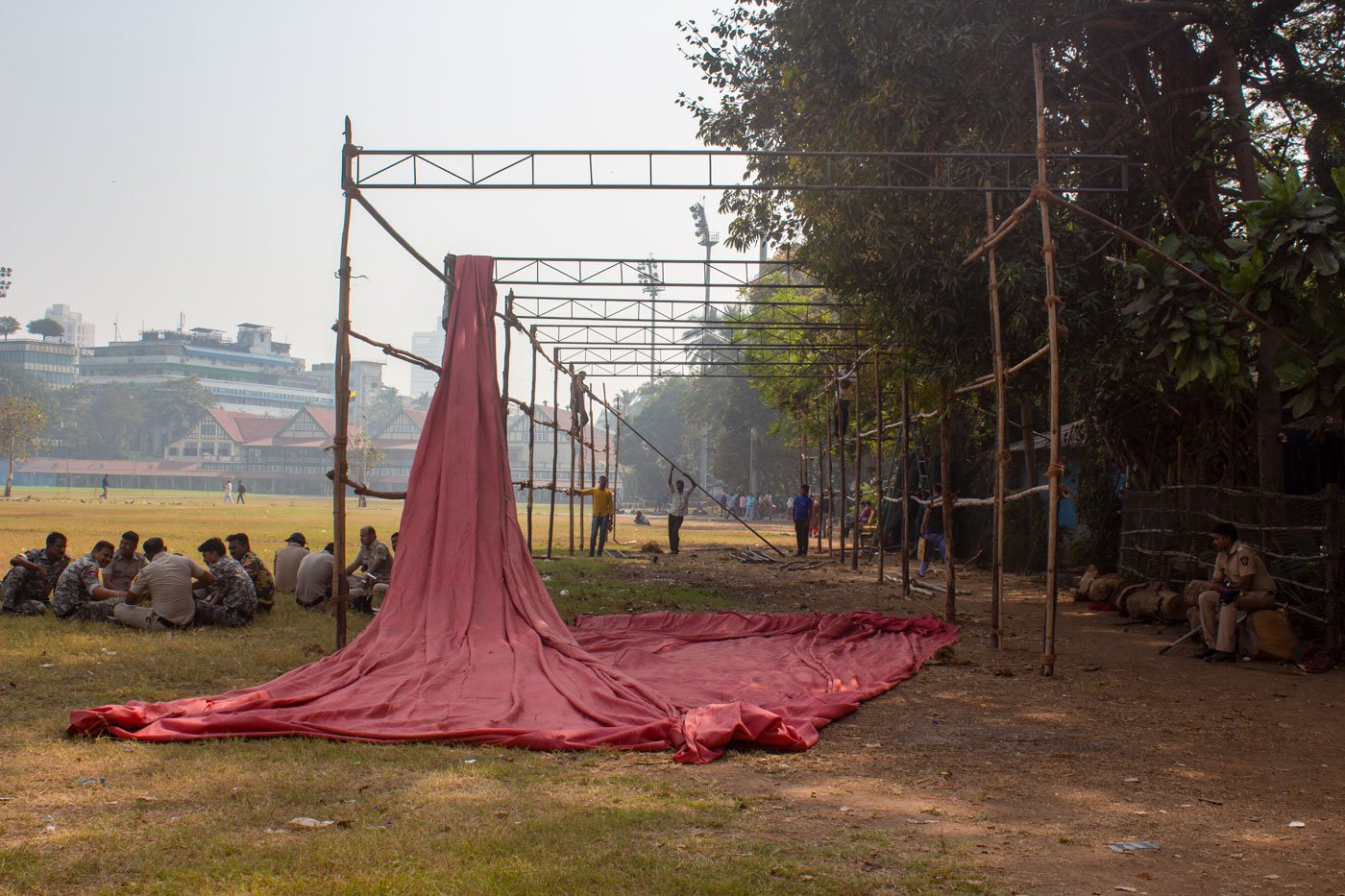
'Once we’re done with work here, we will go to work somewhere else', says Brijesh. 'Many join these protests. But if we don’t work, what will we eat?'
